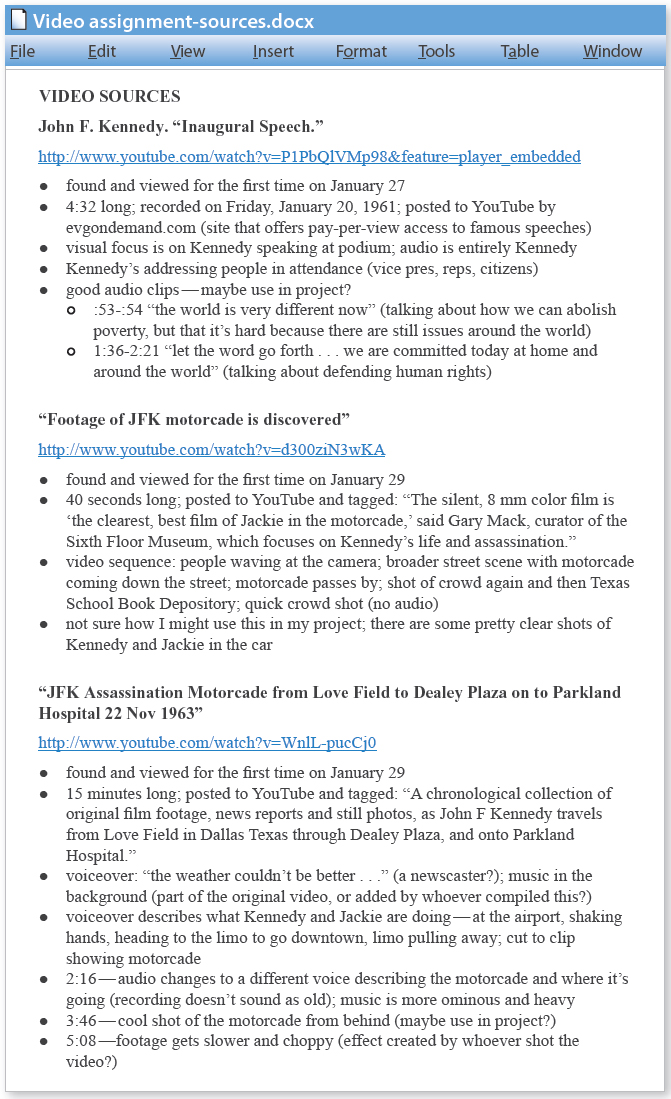MM10-b: Keeping track of all your files
As you brainstorm and research your project, gathering and selecting examples, resources, and other materials, you might think, “Oh, I’ll remember where I found this!” But as you collect pieces from a variety of sources over a span of time, you will probably lose track of where you found at least a few things, and that can cause you problems further down the road. For example, if you use an audio quote in a draft of your project and later decide you’d like to include a few seconds more of what the speaker said, you’ll have to find not only the original sound file but also the exact moment when the words you’ve quoted are spoken. Your job will be much easier if you’ve got the whole sound file in your project folder along with some notes about the speaker, where the file came from, when you downloaded the file, and the time stamp for the words you’re interested in using. You may want to keep your notes in a list that provides key information about each of the files you’re collecting.
Figure 10-4 shows part of a list Williamson kept in her “notes and storyboard” word processing document in her “Writing Class Project” folder.
